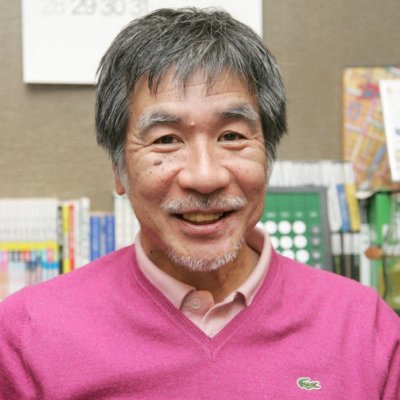Maki Kaji wiki, bio, age, family, died, wife, the father of Sudoku, twitter

Maki Kaji knew better compared to most that the straightforward delights are once in a while the most satisfying, regardless of whether they come as numbers and squares.
Kaji was a man who cherished watching and wagering on horse races, investing energy with his significant other, and distributing a magazine that included riddles for inquisitive perusers.
A decent riddle, he accepted, could be settled and appreciated by fans, everything being equal, and expertise levels. They weren't intended to make you think however much they were intended to remove you from your reality for some time.
The way of thinking with which he carried on with his life - and made his riddles - propelled him to revamp an American riddle into what might become Sudoku, outstanding amongst other known and most generally played riddles on the planet.
"Sudoku is incredible, extraordinary," he told the BBC in 2007. "The issue is something like Sudoku just shows up once like clockwork."
Also, Kaji, who considered himself the "Guardian of Sudoku," was a unique maker.
The distributer and puzzle man, whose Sudoku discreetly engaged parts in his local Japan and across the world, kicked the bucket this month from bile pipe malignancy, as per Nikoli, the riddle magazine organization he established. He was 69.
He hand-solved Sudoku puzzles
Kaji wasn't constantly keen on puzzles, however, he longed for helming an effective magazine. So he made the riddle organization Nikoli, which he named after a triumphant racehorse, as indicated by a 2007 New York Times article.
Kaji partook in the high-speed nature of pony wagering, however, he took care with his riddles - they were totally made independently by his Nikoli staff, as opposed to electronic and made by means of calculations, a technique he trusted would infuse some uniqueness into the riddles.
He fostered various riddles with Nikoli, yet his dalliance with Sudoku started in 1984. That year, Kaji ran over a riddle in an American magazine called "Number Place." Kaji appreciated settling the riddle, however, he had a few notes.
Thus, prior to disclosing his own variant of the riddle to show up in an impending Nikoli magazine, he amended its plan and renamed the riddle Sudoku, which is an abbreviated rendition of a Japanese expression that in English signifies "the number should stay single."
"I WAS at that point wedded around then," he kidded in a discourse at a 2008 US Sudoku title." And if it's not too much trouble, comprehend that I didn't think of 'Numbers ought to be single' since I needed to be single once more."
Sudoku's allure was its straightforwardness: Only the numbers 1 through 9 were utilized, none of the numbers could be rehashed in a succession of the nine-by-nine square and no math was required.
All it took was documenting them in, finishing the riddle, and eradicating them again so the riddle could be gone to another player.
"Many individuals assume that you would pay to live it up in this advanced society," he said in a 2012 meeting with J-Collabo, an association that assists Japanese with peopling interface in New York.
"Notwithstanding, some time ago there were numerous things you can appreciate with no expense like playing with stones or chalks and going to mountains. I figure you can discover genuine satisfaction from these things."
Sudoku went worldwide, yet Kaji opposed global acclaim
It required numerous years for Sudoku to turn into a hit in the remainder of the world, yet in the last part of the 1990s, the riddle began showing up in Western papers.
By the mid-2000s, magazines in the UK, US, and different pockets of the Western world were distributing their own Sudoku puzzles. Be that as it may, Kaji had just reserved Sudoku in Japan - the remainder of the Sudoku puzzles were copycats he didn't contribute to.
In any case, that was OK with Kaji. In his 2008 discourse, he said he figured, "'I would be more joyful to see everybody on the planet appreciate Sudoku all the more effectively.'"
His hand-drawn style would have dialed back creation time, all things considered, and Sudoku's eager global players could barely sit tight for another riddle.
Nikoli kept on distributing magazines occasionally, which were frequently essentially comprised of peruser submitted puzzles.
Kaji opposed ascribing significance to the riddles he distributed - they weren't intended to train or even test the individuals who endeavored to finish them, he said in a 2006 meeting with the Japan Times.
"They're for no reason in particular, for reasons unknown, considering no objective," he said.
The overall Sudoku blast charmed Kaji, yet by that point, he'd effectively discovered satisfaction.
"I didn't turn into a mogul, yet I'm happy Sudoku is currently adored by billions of individuals," he said at the 2008 title. "I partake in my staff saying they are glad for their work, I partake in a glass of wine with my better half consistently, and I appreciate horse racing each end of the week. I'm particularly happy with the manner in which I am."
Kaji resigned as Nikoli's CEO in July, however, the organization vowed to "keep on giving fun and connecting with riddles to the world." Thanks to Kaji, fun, and commitment are prepared into the organization's DNA.
He accepted the consideration he put into each puzzle was obvious to its player and more remunerating for its maker, and that there was magnificence in an even riddle.